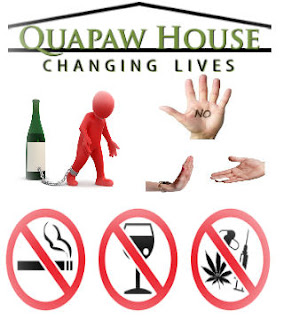Rehabilitation centers play a crucial role in helping those suffering from substance abuse or addictions. However, the rehabilitation service marketplace can be overwhelming, particularly when you don't have any standard decision-making parameters.
As a friend or family member, trying to get your love one enrolled in a drug de-addiction program can prove challenging. We are trying to provide some clarity in making this crucial choice, i.e. from choosing a de-addiction facility to preparations that set the foundations for a recovery. This discussion is a combination of some general guidelines and a few, typical issues that should be addressed at the outset:
As a friend or family member, trying to get your love one enrolled in a drug de-addiction program can prove challenging. We are trying to provide some clarity in making this crucial choice, i.e. from choosing a de-addiction facility to preparations that set the foundations for a recovery. This discussion is a combination of some general guidelines and a few, typical issues that should be addressed at the outset:
1. Employ a combination of isolation or companionship
The biggest challenge when you are contemplating a de-addiction program is cravings that tend to get more serious as the program joining date approaches. At this time, you can use a combination of isolation and companionship. If you have a friend circle that tends to induce alcohol or drug abuse, isolate yourself. If you have a family setup where people are ready to keep you off the chemical abusive agents, try to spend as much time with them. The idea is to enter the program with some sort of control, some degree of preparedness so that you don't waste time in the initial phase of recovery.
2. Dump it all—you need get rid of the TOXICITY
Dump all of your illegally acquired drugs or over the counter medications that have turned you into an addict. Dump all types of alcohols, no matter what the concentration level is—you need to create an addiction-free environment. This gives you an edge when you are entering a detoxification or de-addiction schedule. This is about programming your mind, teaching it how to function without these harmful substances. Yes, you might face extreme cravings but this is a vital step when you are trying to turnaround your life.
3. Start associating with others who are walking your path
When drug and alcohol withdrawals strike, you need some sort of psychological support. Since you have not entered a de-addiction facility, you need a control mechanism. This is where joining help groups or community programs can help. Here, you are bound to find others who are trying to kick the habit. Try to network with those who are counting their sober days and achievers who have been sober for some time. Listening about their personal battles to achieve sobriety can be soothing and an inspiration.
4. Get a reality check: is your choice of a de-addiction program correct?
Now that you have invested in preparing for the real process, give one final reality check about the type of drug or alcohol de-addiction program where you are about to get enrolled. We always recommend facilities that have an established track record and have been involved at the community level. This is why rehabilitation centers, like Quapaw House, surface as a sensible choice—this facility combines community programs along with inpatient, outpatient and adult residential de-addiction programs, having saved thousands of lives.
Summary
Merely deciding that you want to turn sober is not enough. This is a difficult process and needs some serious decision-making. You need to prepare yourself mentally and physically for the road ahead. Quapaw House comes up as a decent facility that combines the best of residential and outpatient programs to help you overcome addiction and stay sober with the best in community care, after-care programs.


No comments:
Post a Comment